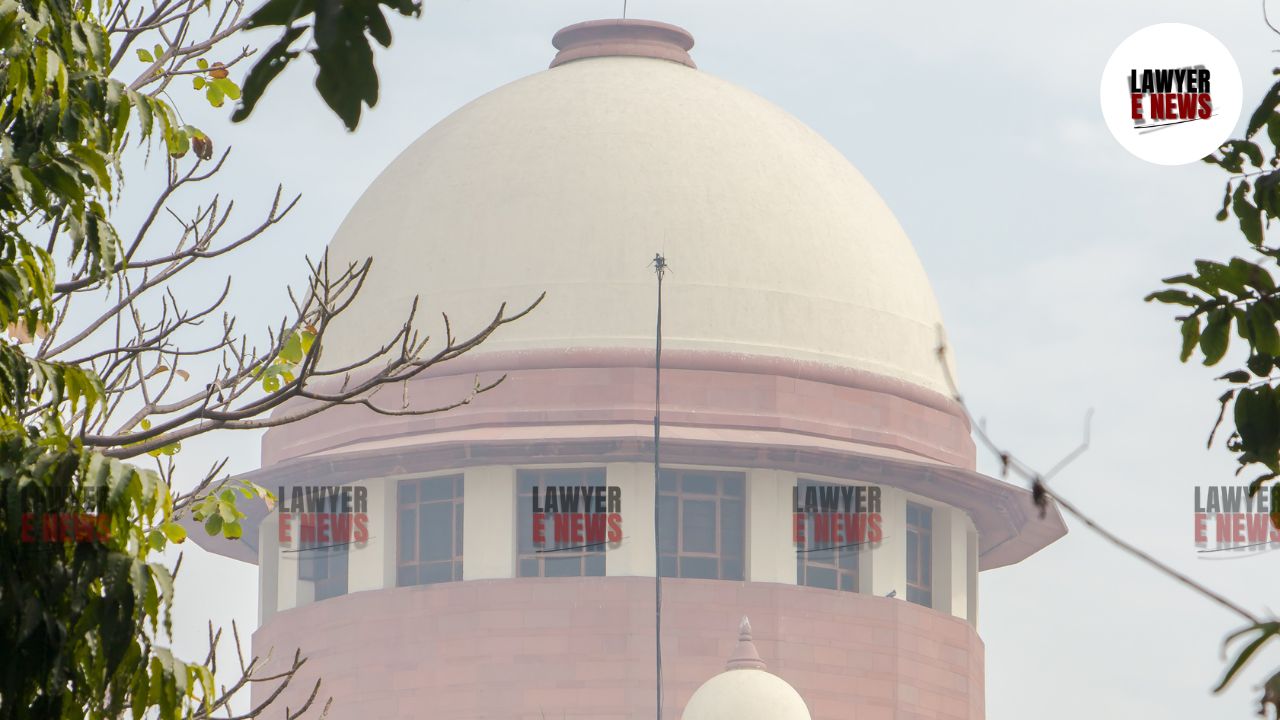-
by Admin
15 February 2026 5:35 AM



Supreme Court Awards Compensation for Wrongful Disciplinary Proceedings in the Armed Forces. On October 21, 2024, the Supreme Court of India, comprising Justice Pamidighantam Sri Narasimha and Justice Sandeep Mehta, delivered a significant ruling in the case of S.P. Pandey v. Union of India & Ors. The Court not only upheld the decision of the Armed Forces Tribunal (AFT) to quash an Admonition order against the appellant but also awarded Rs. 1 lakh as compensation for the undue harassment and prolonged litigation caused by wrongful disciplinary proceedings.
Supreme Court Recognizes Harassment Due to Vindictive Handling of a Minor Incident
The appellant, S.P. Pandey, an Airman in the Indian Air Force (IAF), was disciplined for alleged insubordination following a minor traffic infraction. The Court, in its detailed judgment, decried the disproportionate and vindictive handling of the incident by the IAF authorities, particularly by Sqn Ldr H.V. Pandey, who escalated the situation unnecessarily, leading to the appellant’s detention and admonition.
Incident at Railway Crossing Escalated to Disciplinary Action
The incident occurred on May 17, 2010, when the appellant, while returning from duty, stopped at a railway crossing in a civil area. Rather than waiting behind other vehicles, he overtook them and parked his motorcycle near the crossing gate. Sqn Ldr H.V. Pandey, also waiting at the crossing, confiscated the appellant's motorcycle keys and accused him of violating good order and military discipline. An argument ensued, and the appellant was detained on charges of "Violation of good order and Air Force discipline" and "Use of insubordinate language".
Despite initial efforts by IAF authorities to resolve the matter by expunging the punishment, the appellant faced a second trial for the same charges, culminating in another Admonition in January 2011. This led the appellant to file a statutory complaint, followed by an appeal to the Armed Forces Tribunal.
Armed Forces Tribunal's Decision: Quashing of Admonition but No Compensation
The Armed Forces Tribunal (AFT) quashed the Admonition order in 2011, stating that the disciplinary proceedings were disproportionate and unjustified. The Tribunal criticized the superior officer’s handling of the minor infraction, noting that the officer could have resolved the issue more appropriately by offering advice rather than resorting to harsh punishment. However, the Tribunal declined to award compensation to the appellant for the distress caused by the proceedings.
Supreme Court Awards Compensation: "A Token of Recognition of a Citizen’s Identity and Dignity"
Unsatisfied with the denial of compensation, the appellant approached the Supreme Court. The Court agreed with the appellant, highlighting that the prolonged litigation, spanning over a decade, and the unnecessary escalation of a trivial matter, had caused significant emotional and financial distress.
"The disproportionate measure adopted by the respondents, the assurance of expunging the admonition, withdrawal of the same and then the retrial, leading to the imposition of the punishment caused a great amount of distress." [Para 7]
The Court noted that while monetary compensation cannot fully restore lost dignity, it serves as a token of recognition of the appellant’s identity and the rights that were infringed upon.
"We are aware of how insignificant the monetary value of loss of dignity could be, but legal remedies enable us to settle it only as a measure, a token of our concern and in recognition of a citizen’s identity and dignity." [Para 11]
The Supreme Court directed the Union of India to pay Rs. 1 lakh in compensation to the appellant within 30 days.
Vindictive Action of Superior Officer Decried
The Supreme Court echoed the Armed Forces Tribunal's view that the conduct of the superior officer was vindictive and unnecessary, particularly given the minor nature of the infraction. The Court observed that the situation could have been handled more appropriately and that the officer’s actions were not in line with the high discipline and dignity expected of Air Force personnel.
"The strict action taken by Sqn Ldr H.V. Pandey in a public place over a trivial issue cannot be appreciated. An officer's behavior should set an example." [Para 6.1]
The Court emphasized the need for balance and proportion in disciplinary matters, especially in the armed forces, where minor infractions should not lead to unnecessary escalation and harsh punishments.
A Milestone in Addressing Vindictive Disciplinary Actions
This judgment sets a precedent for addressing cases of disproportionate disciplinary actions within the armed forces. The Supreme Court's decision to award compensation for wrongful disciplinary proceedings recognizes the emotional and financial toll that such actions can take on service members and stresses the importance of fairness and proportionality in military discipline.
Date of Decision: October 21, 2024
S.P. Pandey v. Union of India & Ors.
